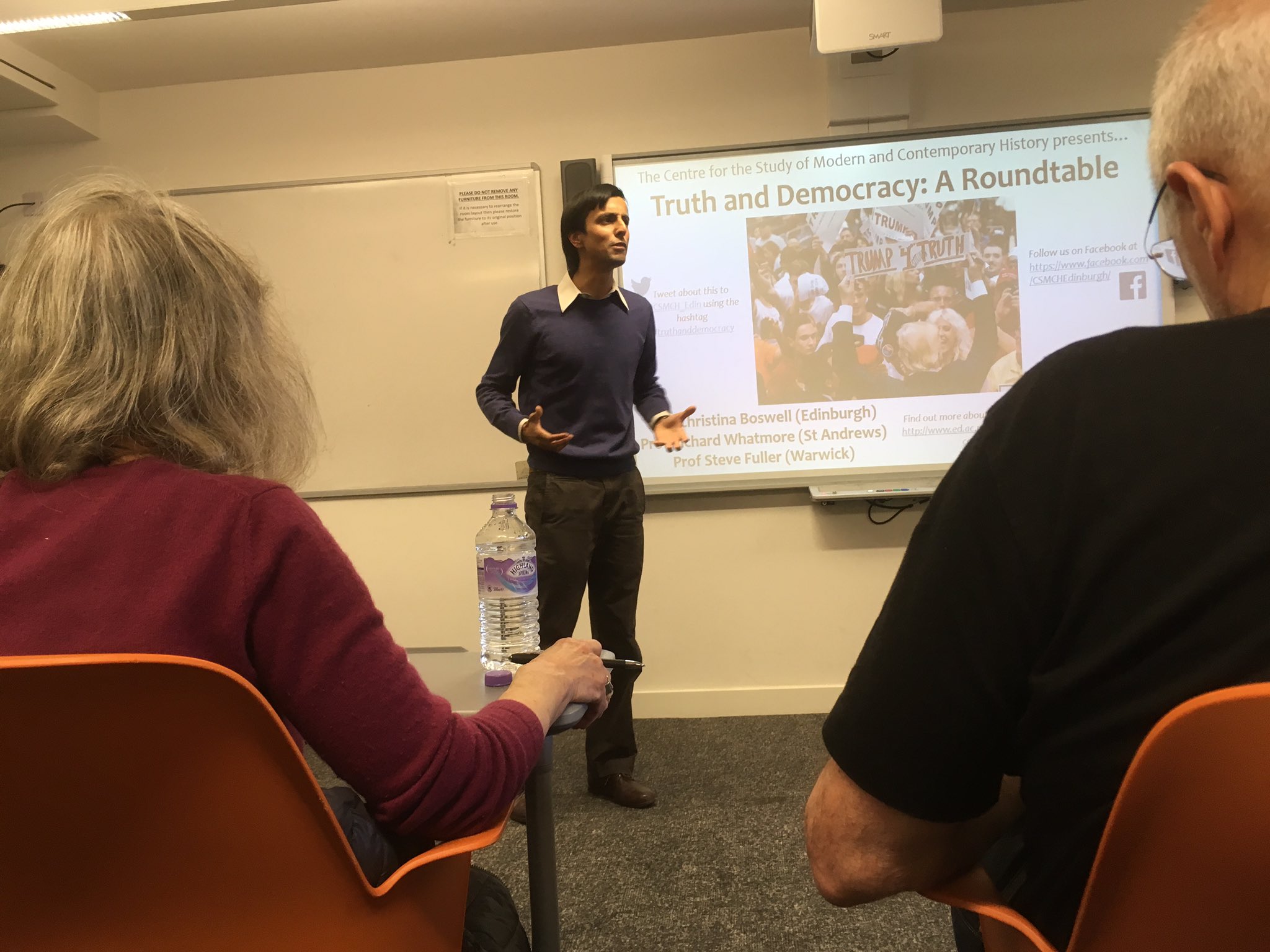On Thursday evening, the Centre was delighted to host Vincent Tiberj (Sciences Po Bordeaux), whose reputation ensured one of the largest seminar audiences in the Centre’s (admittedly brief) history. Fraser Raeburn was there to bring us this report of the event.
Vincent Tiberj’s work sits at the often problematic juncture between history and political science, but as pointed out by respondent Jim Livesey (Dundee), this was a methodological masterclass in how such these disciplines can be combined.

Tiberj’s thesis was simple: generational change is an inescapable fact for any established democracy. As he pointed out, 59% of French voters today were not alive or able to vote in 1981. This means that when discussing shifts in allegiances – such as former Communist strongholds turning to the far-right Front national (FN) – we aren’t necessarily talking about individuals changing their views, but a generational shift. Trying to measure and account for this effect is, however, a substantially greater challenge, in part due to the competing effects of age (due to position in the life cycle, such as compulsory military service at 18) or period (something that affects the entire population at a particular moment).
Using a series of opinion polls conducted throughout France since 1973 as a base, and taking neutral, decade-based cohorts as a starting point, Tiberj was able to present a series of graphs and diagrams showing how different generational cohorts had been shaped in France. There is no doubt that at times this data was a blunt instrument, obscuring potential divides across class, region and gender, but nonetheless providing a useful holistic picture. Intergenerational changes in religious beliefs, educational attainment and employment history were all clearly visible.
These social changes formed the basis of his explanation of changing political attitudes. Although he lacked the time to take the audience through each of his approaches to this data, his discussion of citizens’ relationship to politics and political participation based on his data gave a substantial insight into his work on the subject.
Using this approach, Tiberj identified what he saw as three key political cohorts in contemporary France. The first was those born before the Second World War. These citizens did not engage with or discuss politics frequently, but nonetheless voted at a much higher rate. Tiberj characterised these as dependent voters, who saw participation in democracy as a duty, had high levels of faith in politicians and institutions, and tended to exhibit high levels of partisan loyalty.
Baby Boomers were the next generation, and Tiberj identified the impact of the protests of 1968 in not just mobilising youth at the time, but ensuring that this mobilisation lasted a lifetime. These were critical citizens, more interested in and knowledgeable about politics, and more independent than the previous generation. This cohort retains a relatively high level of political participation, but driven more by knowledge and interest than a sense of duty.
Finally, the post-Boomer cohort appear as remote citizens, who felt themselves distanced from the political system. Thanks to higher levels of educational attainment, they are more informed about politics, but less engaged with the process. Tiberj hypothesised that the connection between political knowledge and interest had been broken – after all, cynicism and distrust towards politics and politicians is hardly an irrational response in France or anywhere else. This cohort is willing to participate in politics, but only when they could see that it was important, with high participation in Presidential elections, but much less in European elections.
Tiberj put forward this analysis with a note of optimism. Rather than heralding a collapse of democratic legitimacy, these new generations exhibit a willingness to participate in politics in nontraditional ways, and in many ways are simply demanding more of their political system than previous generations. With an important caveat: this optimism applies only to the educated. The post-Boomer working class has not yet found a political voice.
Tiberj’s analysis throughout deserves the attention of someone more attuned to political theory, not least because he engaged with ideas like those of Ronald Inglehart on the impact of postmaterialism on politics. Fortunately, other members of the audience were less constrained, asking numerous perceptive comments and questions. And, even as a relative newcomer to such debates, I could see that Tiberj has contributed important new insights about modern French politics.
Fraser Raeburn is a PhD student in History at Edinburgh. He works on interwar Europe and Britain, ideological confrontation and the history of foreign fighters. His thesis examines the involvement of Scots in the Spanish Civil War. He is a member of the CSMCH steering committee.




